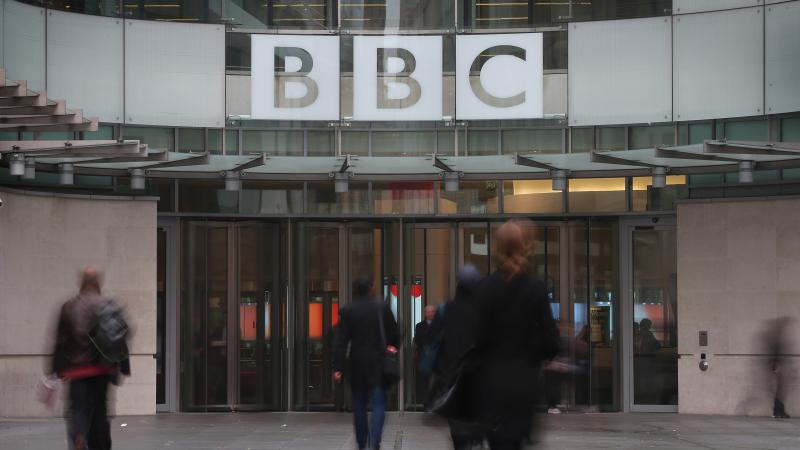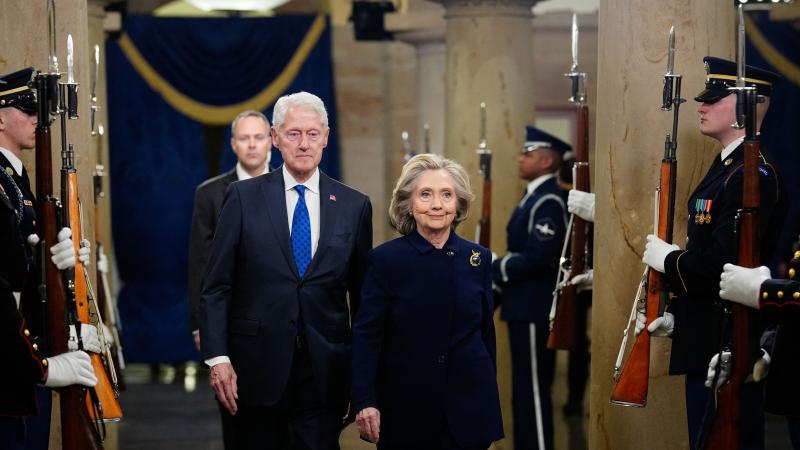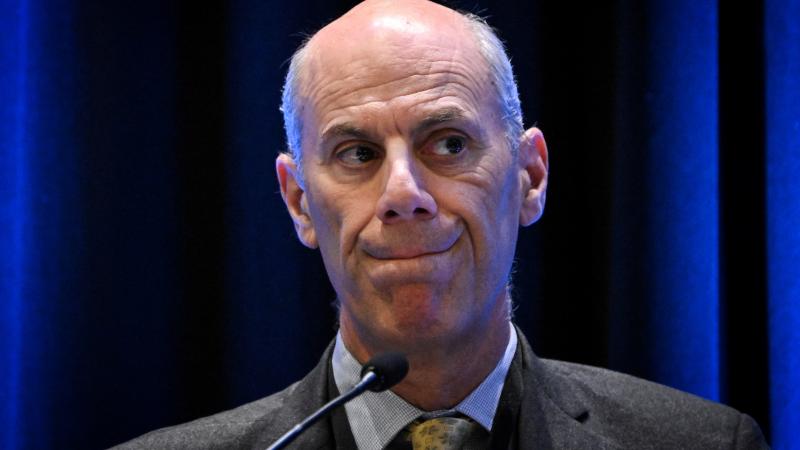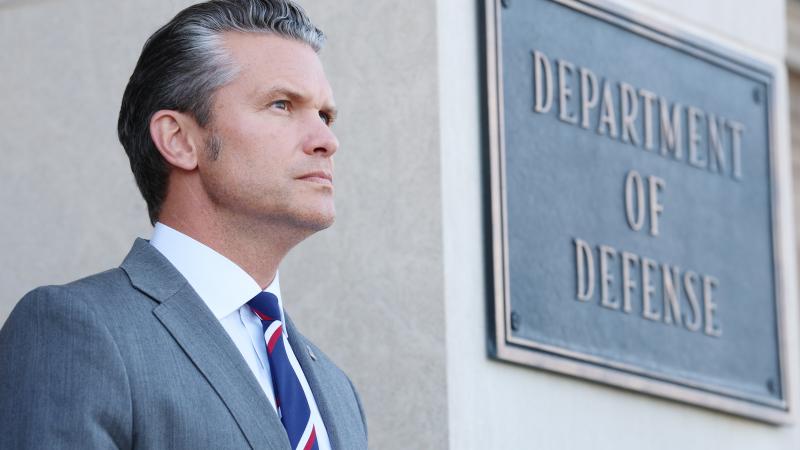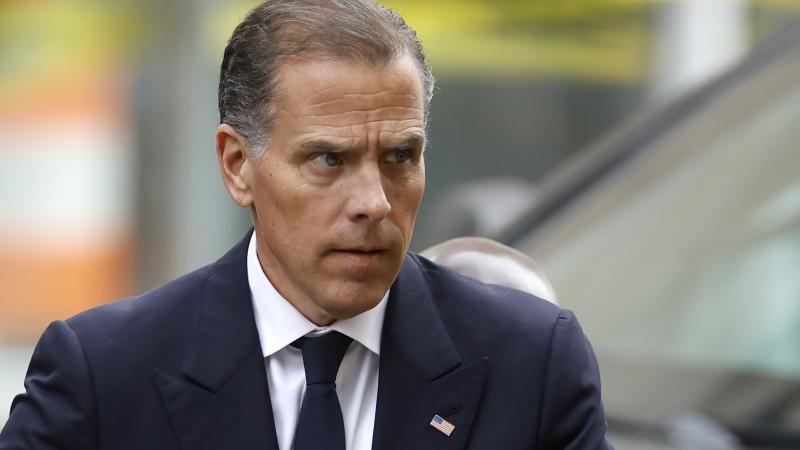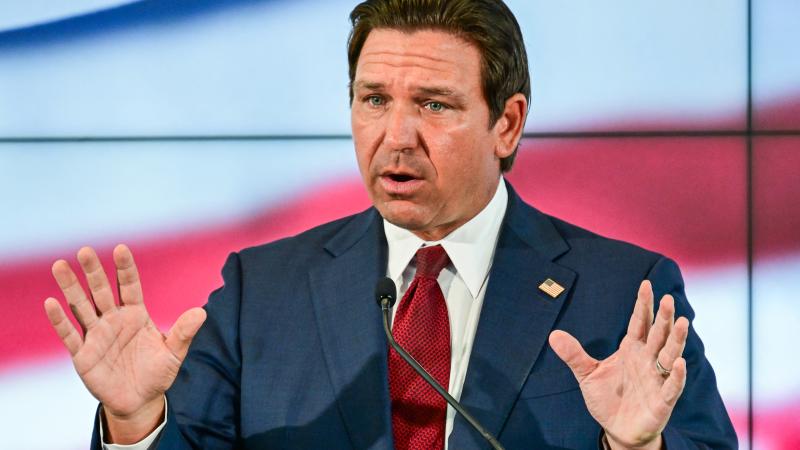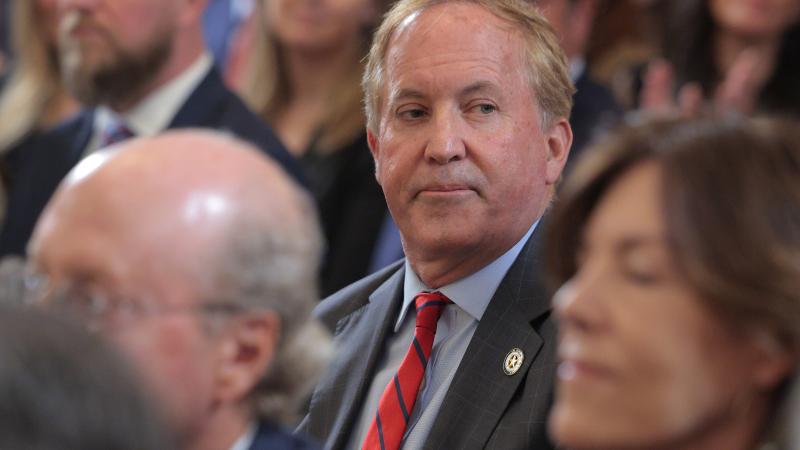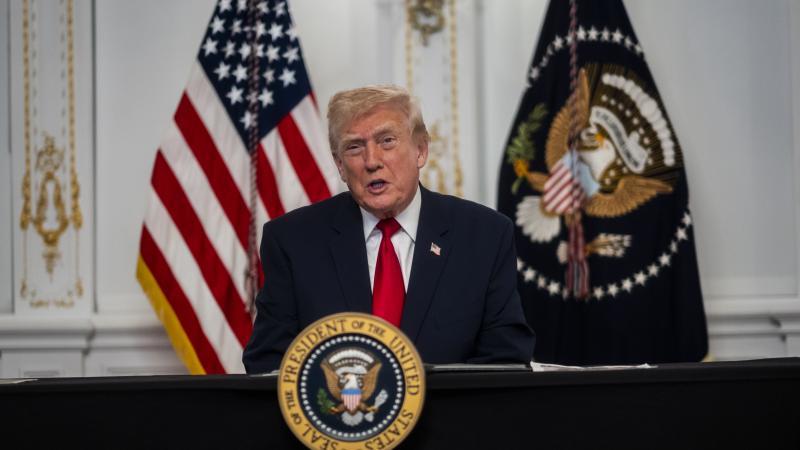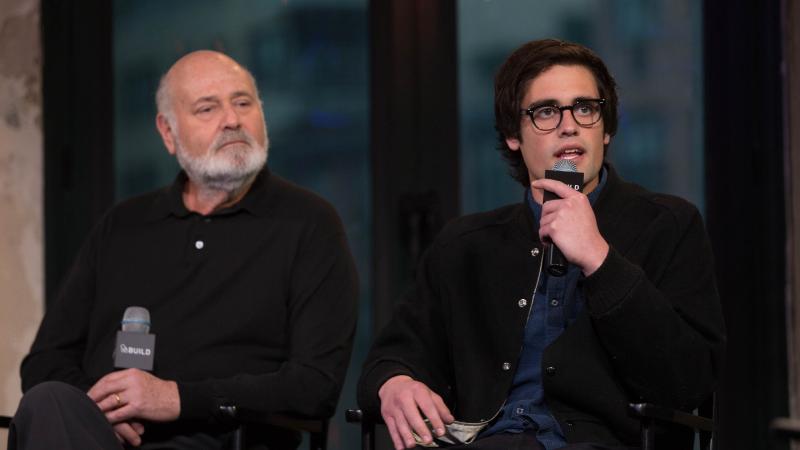What's behind the continued media campaign against hydroxychloroquine?

Media Matters is joining big tech and others leading a panicked, fact-challenged campaign against hydroxychloroquine.
Full transcript:
Sharyl Attkisson 0:08
Hi everybody Sharyl Attkisson here. Welcome to another edition of the Sharyl Attkisson Podcast on JustTheNews.com. A digital website you ought to check out. I hope you'll think about pre-ordering my new book that's coming out, Slanted: How the News Media Taught Us to Love Censorship and Hate Journalism. Today we're going to dig into the continued media narrative campaign against the anti malaria drug being studied for possible use regarding coronavirus: hydroxychloroquine.
Maybe you've noticed a stepped up, rather panicked, it seems to me, campaign against the anti-malaria, anti-lupus drug hydroxychloroquine as a possible preventive or treatment for coronavirus. As usual, I'm not taking a position telling you what to do on this or claiming to know myself. What works and doesn't work when it comes to medicine and Coronavirus. The fact is the jury is still out on all of that. The jury's still out on vaccines and development, and according to reports, as many as 600 drugs being studied for use against coronavirus.
I'm interested as always, when there are such coordinated and apparently well funded attacks or campaigns against something, and when so many in the media get on the same page, sometimes reporting the same false and misleading information in an uncannily similar way. Experience teaches us there are corporate and or political interests behind campaigns like this, and I don't know all the answers. But as a thinking person as you are, if you're listening to this podcast, it's wise to at least ask some questions.
It seems to me the attacks in recent days in the media and by political and online groups and on social media, as I mentioned, have a feel or a sense of panic. Yeah, I guess a long time ago I would have concluded when I saw this that the same thing powerful interests hope we conclude that there's a safety issue. In this case, for example, and the censorship of information about this drug or the attempted censorship, the supposed debunking of hydroxychloroquine is all I would have assumed in the best interest of us based on factual information. But, today I know better and of course, I've written about the groups behind these campaigns in my previous books, including the Smear.
Of particular interest to me right now is the liberal David Brock propaganda smear group Media Matters for America that has taken a keen interest, a peculiar interest, in trying to censor and controversialize information about hydroxychloroquine unless of course, it's all negative. In the past, Media Matters consistently takes many pharmaceutical industry positions on controversies and just put out false and misleading information on many topics. Media Matters donors that, I would have to guess, are tied to pharm- or certain pharmaceutical interests. But the way Media Matters and groups like it work that other than a big donation that Media Matters got that was publicized from progressive activists, George Soros. We don't know much about who funds Media Matters whose interests are behind it, who's pulling the strings because the group can legally keep the names anonymous or hidden, in this case by using a third party fundraiser.
Anyway, Media Matters recently launched another attack against hydroxychloroquine and those who reporting factually on the medicine, attacking it if it's off their narrative. Now, their narrative is that this medicine is a proven killer, a Trump drug proven dangerous. And in their latest attack, they attacked one of the companies I work for: Sinclair, which produces my Sunday TV show: Full Measure and by the way, going off on it tangent here. That's another media campaign Media Matters has led against Sinclair. And they worked into this criticism of hydroxychloroquine a pretty weak criticism of the investigation I did on hydroxychloroquine, in recent weeks. Now, my story primarily looked at media coverage and conflicts of interest among those recommending against using hydroxychloroquine. You can find my full story about that on fullmeasure.news. Go to fullmeasure.news, search "hydroxychloroquine" in the search bar at fullmeasure.news - doesn't always work correctly. So, sometimes you have to just click into any story and then you'll see the search bar appear on your computer. It might be top right but that magnifying glass.
So, Media Matters issues its attack on hydroxychloroquine and including my story. Within a couple of hours, I get contacted by the Washington Post, which is copying the Media Matters story. Now the Washington Post is not asking why there's been so much media misreporting, claiming that hydroxychloroquine had been proven dangerous. It had not. It's on the market, the FDA is approved it is safe and effective. And there are studies underway for its possible use regarding coronavirus by multiple government and non-government entities. And the Washington Post was not asking who Media Matter donors are, or looking at their misleading information and sometimes false information. But of course, the Washington Post is taking its marching orders from the Media Matters story and doing a story just like Media Matters has directed for them and others to do. This is how it works. Again, I've written about this in my new book, Slanted and in my previous book: The Smear, how propaganda groups like Media Matters are able to successfully pull strings at and set the agenda for news organizations like the New York Times and Washington Post, dictating what you see and get to know about rather than looking critically at other angles that they're not being told to look at by these groups backed by powerful interests. Right after the break, I'm going to read you the questions I got from the Washington Post and the responses that I gave to the newspaper.
We're back. So the following are the questions that the Washington Post's Paul Farhi posed to me, prompted by a Media Matters propaganda blog, and the answers that I gave. So first, Farhi writes, "Hello, Sharyl. I'm working on a story about Sinclair's coverage and commentary about the Coronavirus and I would like to talk to you about what you've been reporting on your show. I'm specifically interested in your thoughts about hydroxychloroquine. Especially given your many years of skepticism about vaccines. Would you have a few minutes to spell out your thinking about this, I would appreciate it? Many thanks, Paul for The Washington Post."
I reply, this is all in writing, "Hi, Paul. Yes, but if you are copying Media Matters, please take a look at my stories they reference and then we can talk. Also with respect, I do not have 'many years of skepticism about vaccines.' I've reported on vaccine safety, as I've reported on tire safety, charity, fraud etc. For example, I am not skeptical of tires, just because I uncovered news about the Ford Firestone rollovers. But it is true that media matters and pharmaceutical interests have portrayed it that way and many have parroted that narrative that I am anti vaccine etc, which is entirely false."
Farhi replies to that, "Fair enough. How would you prefer to be described relative to your vaccine reporting? Maybe: 'Sharyl Attkisson has reported critically about vaccines, or who has raised doubts about the safety of vaccines or what?'"
I reply, "Thank you for asking. I have reported on vaccine safety issues. My vaccine reporting has been cited as a reference in the New England Journal of Medicine, and has been part of a group of medical stories receiving a Finalist award from Investigative Reporters and Editors (IRE). I'm fully vaccinated and then some, as is my daughter. The 'anti vaccine name narrative' is the thinnest of narratives yet successful and widely accepted among some. As you may know, Media Matters and its interests are a major driver of all that. I wonder why."
Next, Farhi says, "So, the most neutral way into this is, 'Sharyl Attkisson has reported extensively on vaccine safety issues', except that suggests there are vaccine safety issues, especially in terms of your reporting the connections between vaccines and autism, which most in the medical establishment reject. Wouldn't that kind of, shorthand, be defaulting to a skeptical position one that is widely rejected by experts?"
I answer, "Well, first, there is no dispute that there are vaccine safety issues. There's an entire court and compensation fund set up that is paid out billions of dollars to vaccine patients and victims. That's not the dispute. It doesn't mean all vaccines are dangerous any more than all medicine is dangerous or safe. I certainly haven't suggested any such thing ever. And I think it's hard to accurately call me a vaccine skeptic having been fully vaccinated with a fully vaccinated child. And many stories I've reported are on the opposite side of a particular group, Firestone, Ford and NHTSA, The National Highway Traffic Safety Administration, said the tires were safe. The government and many others insisted guns were never walked. That's how truth is often ultimately revealed or new facts come to light as they have."
And then I continue on to ask Farhi, "What is your professional view of the government's top pro-vaccine expert [...], a world renowned pediatric neurologist who told the Department of Justice that vaccines can and do cause autism in rare cases after all. Newsworthy? Especially when he says in a sworn affidavit, the Department of Justice misrepresented and covered up his findings and names names. Whether you believe them or not, it's hard to argue that's not noteworthy. I wonder why so few reported that? Why shouldn't people hear his scientific views, along with the other ones so widely pushed by so many interests? Also, do you think it's noteworthy," I continue, "that CDC's top immunization official acknowledges that certain conditions in children may make them susceptible to autism after vaccines, and that should be investigated. Only the government won't fund such studies for some reason. Also, CDC's immunization official acknowledges that's apparently what happened. Vaccines triggered autism in a child with a predisposition in one landmark case years ago that the government secretly paid and had seals so nobody else would know only it leaked out. Newsweek? I think so."
Farhi writes, "Well, I'm not looking for an argument. I'm looking for a description."
I answer again, "I'm not trying to argue but people who make statements and cover this stuff often lack basic knowledge. They rely on what Media Matters and others have put out there without knowing the fundamental facts themselves. So it's a difficult starting point. So the fairest thing might be to say the false defamatory things that critics say, you know that I'm anti vaccine, etc. But then at least balance it with something about none of my stories ever having been corrected or retracted. My story is being cited in the New England Journal of Medicine, the Finalist award. And if you get into vaccines and autism, interesting how it keeps coming back to that even when the story has nothing to do with vaccines - that there certainly are many scientific experts and authorities who do not consider that a closed case, including CDC head of immunization DeStefano and the government's own one time pro vaccine expert who says vaccines can cause autism after all. Or, just leave it out," I tell Farhi.
"You might also recognize that I have covered many medical stories, but mostly from safety, corruption, cover up, etc, rather than as a medical reporter. And I've broken news that was against the grain such as the diabetes drug rezulin that eventually got pulled from the market. I believe I was the first reporter who broke the story of Viagra is linked to blindness. Which of course was soundly denied by most every medical authority, initially. I reported on cholesterol drugs' statin's side effects that the experts and drug makers denied but did not appear as warnings on the label and now do appear as warnings on the label. I reported on ephedra before it was taken off the market. My track record is reporting accurately and responsibly on many medical safety issues."
Farhi then says, "I want to contrast your vaccine reporting with your programs. Yes, highlighted by Media Matters on hydroxychloroquine. Again, not looking for an argument just a way to fairly and accurately describe your approach. Whatever anyone thinks of hydroxychloroquine, when the science on it is far from settled, the fact is we don't really know if it's reliable, safe or effective. You did two programs that on balance were favorable toward it. Given your reporting on vaccines, which are "overwhelmingly safe." How do you square your relatively positive attitude toward a drug that people a lot smarter than both of us aren't certain about? Further, did Trump's promotion of hydroxychloroquine affect your approach? If so, how?"
I reply, "First of all, your premise that vaccines are overwhelmingly safe shows, with respect, lack of understanding, that's like saying, medicine is safe. Certainly because one medicine is dangerous for some isn't an argument for stopping all medicine, nor does it make one anti-medicine. This is not in dispute. Some vaccines are safer than others. Some are more effective than others. Some are considered more necessary than others. Some work well in some people but are harmful to others. You were implying, perhaps unintentionally, that there was an all or nothing proposition one must say vaccines are overwhelmingly safe. Therefore, do not look into any safety issues. Or if you do then you are anti-vaccine. Tires are overwhelmingly safe. The dangerous or faulty tires should not be sold. It seems pretty simple. But when the narratives and interests into the picture becomes distorted, I denied being anti-car or anti-tire. This statement you made makes you in the eyes of Media Matters and the likes, a science denier. The statement when you said," I tell Farhi, "'whatever anyone thinks of hydroxychloroquine the science is far from settled. The fact is we don't really know if it's reliable, safe or effective.' I agree with your statement if not reported to the contrary. I've reported various scientific views and tried to report those which in today's narrative driven environment come from credible sources but are not widely reported or are actually avoided by other media in their one sided stories, where they claim or imply, unlike your position, that the science is settled, because hydroxylchloroquine they say kills you. Whether it's this topic or any other I'm against the notion that we in the news should censor information that is in dispute, or as yet unknowable, no matter how many people pretend or claim to know it, or how many don't want the information reported. Did you read my stories, by the way," I'm still asking Farhi? "You were implying I said the science was settled and we should all take hydroxychloroquine."
Farhi answers, "Unfortunately, Sharyl, I can't really get into a debate with you on this because number one, you know more than I do about this topic. Number two, I have neither the time nor space to play out the subtleties. So I will settle for being as fair and accurate as I can be. In the three or four paragraphs I'm going to devote to this part of the story. So back to my question, how should I describe your reporting on vaccines? And how should I describe your recent reporting about hydroxychloroquine? You have the floor."
My response, "I'm still not sure what one has to do with the other except pharma interests always want to link vaccine stuff to anything else they can controversialize. But bear with me for one more moment, and then I'll try to succinctly answer. I'm pointing out that my article did not take the position you seem to be representing. So here are a few points I said in the article, 'two divergent views of the drug hydroxychloroquine have emerged, the negative one widely reported in the press and another side, you've probably heard less about.' Another quote from my reporting 'camps largely divided along political lines. Many right leaning media figures sided with hydroxychloroquine while the left leaning press backed remdesivir, each accusing the other of ignoring real science.' Another quote from my story 'on May 1, the FDA seemed to give remdesivir the edge, allowing emergency use for severely ill coronavirus patients, at the same time stepping up cautions against hydroxychloroquine and its sister drugs saying they should only be taken in the hospital or as part of a formal study due to reports of serious heart rhythm problems. Dr. O'Neill is now leading a study to find out if hydroxychloroquine can serve a critical role as a medicine to prevent coronavirus but he says the bad press is making it difficult.'"
I go on to tell Farhi, "Question I asked in the piece as part of my reporting, 'how do you account,' I asked a doctor, 'for the difference in medical and scientific opinion about this drug because some people seem so certain that it can be a positive benefit to coronavirus patients, maybe even crucial in the early days. Whereas some people are convinced it absolutely should not be used.'"
And finally, the last quote I give to Farhi from my reporting I said, "In the end, politics and money aside, at least some scientists aren't ready to count hydroxychloroquine out of the coronavirus equation, even if, even if others already have. And I asked the question of a scientist, 'is it possible that it's not one or the other that hydroxychloroquine could be used in a certain setting, maybe for preventive? If you find out that works, and the other drug remdesivir could be used in other settings?' And the doctor answers, 'Absolutely, I think it's still just very early in the disease process that we're going to learn a lot. There's 600 studies being done in the United States right now on COVID to see all sorts of different kinds of infections and combinations. We're going to be a lot smarter by the end of the summer. So I think what I would say to everybody just hold your powder.'"
And then I point out to Farhi, "That's hardly some kind of one sided personal endorsement saying I know the end game, quite the opposite. Please let me know when you've read the whole story, and I will work on a short response for you."
Farhi apparently then reads the story maybe for the first time, I don't know. And he writes, "I've read the story, please give me a short response."
So my final response is, "Considering all the background I've provided, please be fair. As always, I strive to report on unreported topics and views being censored or ignored by much of the media, allowing viewers to have information and make up their own minds. My reporting on vaccine safety issues has been off the narrative of Media Matters and pharmaceutical interests, but I repeat myself. Yet, represents views of credible government and scientific experts that has been factual, fair and cited by a medical authority in the New England Journal of Medicine. My recent reporting on hydroxychloroquine has also been factual and fair. It is only controversial in the annals of the Media Matters and pharmaceutical interests and their disciples but not from a journalistic or factual standpoint. As I reported, there are two divergent views of this medicine that attended to follow along political lines and the jury's still out. This is in contrast to the widespread reports that stated or implied the scientific case on hydroxychloroquine is a potential treatment or preventive measure had been closed. Even as multiple studies on it, including by the government, were actively underway. Ironically, powerful interests are able to successfully direct media attention so that the scrutiny falls on the accurate reporting, rather than the many false and misleading reports. The simple version of the takeaway in my report from well respected experts is as my story stated, 'politics and money aside, at least some scientists aren't ready to count hydroxychloroquine out of the Coronavirus equation, even if others already have.' The idea that certain interests are working so hard to censor this information should be a red flag that leaves all of us to ask why."
And in the end Farhi replied, "Yep, got it. Thanks."
So I just gave you a whole lot of information. If you're interested in seeing it in writing, you can read all of this for yourself at SharylAttkisson.com. Look for a story titled "Attkisson's full response to Washington Post questions about Media Matters blog against hydroxychloroquine. Actually just go to SharylAttkisson.com and if you search hydroxychloroquine, or Media Matters that will come up as one of the first results on my website, and then you can read it.
Also, inside that page, the full response on that story, there's a link to my report from Full Measure about hydroxychloroquine there. So it's easy for you to link to that - also my vaccine reporting. As always, then you can make up your own mind. You don't have to rely on what other people are telling you to think.
By the way, one final mention. While I was producing this podcast, another, in a strange series of Google search errors involving my website seemed to happen and got flagged by Google ads. I've talked about these on some of my previous podcasts. Strangely, these errors that kind of flagged my website or reduced distribution of a page or a story, they've only happened a couple of times, and they're over stories either about hydroxychloroquine, or my vaccine autism investigation that I did, I believe in January of 2019. And one on a the anti-Trump whistleblower who started the impeachment conversation. It was a link to a story an investigation done by Real Clear Politics or Real Clear Investigations that had named the whistleblower when other media would not.
So anyway, these stories that certainly powerful interests, I guess, progressive and liberal interests don't want people to see happen to be getting flagged somehow. And I can't technically explain exactly how this is happening, but the links to these stories on my website are somehow changed. A word is added, or some characters are added whereby that link goes to a 404 error as if it doesn't exist. And the people helping me with my website, I guess I think they can fix it. I don't know how it happens in the first place, but it just happened again, with a story I did called BREAKING: Hydroxychloroquine Lowers COVID-19 Death Rates Study Finds, and it was about a peer reviewed published study, fairly important study that found that in a look at hospital patients - hospitalized patients - who had been treated with hydroxychloroquine, with or without. There appeared to be a benefit to patients who were treated. I believe in the first let's say 72 hours, you can look at that yourself.
But if you go to my website, and search "breaking hydroxychloroquine" it goes to the right page if you go directly to my website. I guess if you search another way, for some reason, it's been going to a 404 error. A lot of scary, seemingly censorship type things are going on with big tech. And I'll have an article about that coming out probably in the next couple of days that I'll refer to on my podcast tip.
I want to remind you that I did a previous podcast where I looked at the first 18 Media Mistakes in the Era of Trump that I'm following, there are more than 100 now. I'll be continuing that list on subsequent podcasts. You can also listen to Full Measure After Hours, my other podcast. Where I continue with the list of media mistakes, and topics that you might look. Reminder, all of these topics are addressed in my new book Slanted: How the News Media Taught Us to Love Censorship and Hate Journalism. I'm pretty excited, the cover will be revealed next week, and I'm hoping to get a lot of pre-orders. It'll be released in November, making a great stocking stuffer holiday gift for yourself or an inquiring mind you know who might enjoy dissection of these subjects. It's a nonpartisan look at the devolution of news and the control of information online and on social media. And it includes a dissection of the problems that CNN, where I once worked, and the New York Times. And this is the first book, Slanted, that I know of, that includes interviews with and comments from more than a dozen current and former top news executives, including news division presidents, producers, reporters from CNN, CBS, ABC, MSNBC, NBC and the New York Times. It's going to be quite the book and I hope you'll give it a chance and order it and pass it around.
So all of this today is nothing more than to get you to think about what you're seeing in the news and online and apply all the lessons I've discussed in recent years. I don't have all the answers as to why it's become almost like a religion to discredit and censor certain information about hydroxychloroquine, any thing that's not negative. Information that's false about hydroxychloroquine is sometimes being uncritically accepted and embraced in the media and any attempt to report factual, fair and balanced information is attacked if it's not negative. This tells you, at least it tells me, that there are powerful forces trying to impact the public discussion. For reasons we might be able to guess. But I don't think we can say with 100% certainty at this point, who and why. Maybe we'll be able to know in hindsight, some years from now, but we should keep this in mind. With all of our news and media consumption, it's become very difficult to get a well rounded look at the news today. You're getting by and large what somebody wants you to think and believe, and it may be only one sided, or it may be false, but you won't necessarily know it. And those who try to tell you will be censored.
So keep your eye on the bigger picture.
I hope you enjoy today's podcast check out JustTheNews.com and don't forget to subscribe to the Sharyl Attkisson Podcast, as well as my other podcast Full Measure After Hours, and all the Just the News podcasts wherever you like to listen. Do your own research. Make up your own mind. Think for yourself.

